Migrate Away from HubSpot: The Top Alternatives
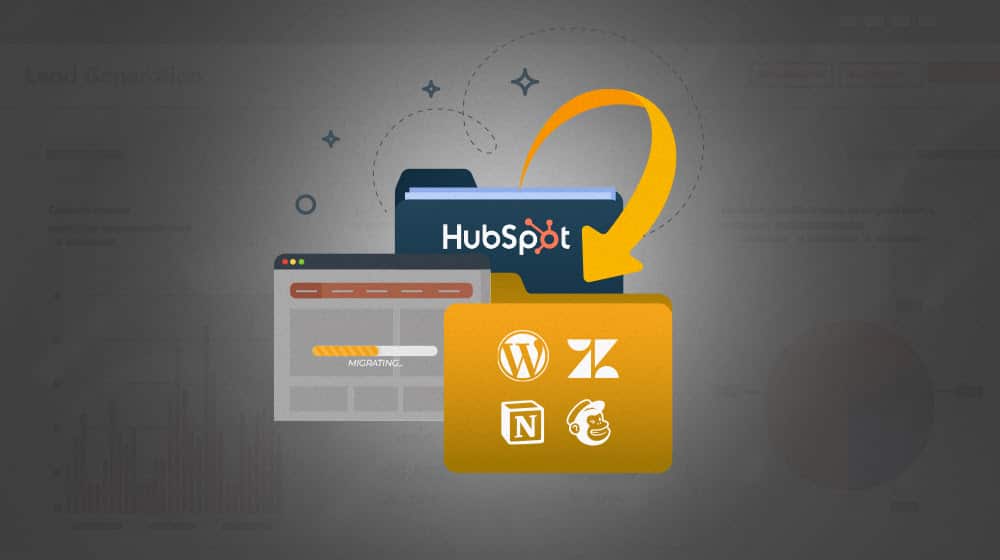
HubSpot is one of the largest and most well-known platforms for marketing and business operations currently available. It's been steadily growing for years, and tons of companies use it today.
It's undeniable that HubSpot can be very valuable. It's good or great at a lot of different things, from CRM and CMS to email, live chat, sales, forms, and much more.
The downside is that HubSpot can be very expensive. It's slow to move and not very agile. The different components work well together but work less well with similar external apps if you don't want to use HubSpot's version of the feature. And did I mention that it's expensive? You can easily end up spending hundreds or thousands of dollars per month on their system.
Don't get me wrong. For some companies, HubSpot is fantastic. It's one ecosystem that does just about everything. Does it do everything perfectly? Of course not. But, when you're managing a huge enterprise and every little inefficiency has the potential to be a very costly mistake, it's better to minimize those inefficiencies.
So, if you want to migrate away from HubSpot, you have to figure out what you're going to use instead. That's why I put together this list; to help you figure out what you can use.
Since HubSpot has so many different features, I've put together lists of alternatives for each of the core components. If you have something to add, let me know!
Alternatives to HubSpot as a CRM
As a customer relationship management platform, HubSpot excels. It's one of the better options on the market, so it's hard to find a replacement that's quite as good. As an overall CRM platform, you have a lot of small functions and features you need, and finding 1:1 replacements is hard. You may end up needing to use multiple apps to piece it all together.
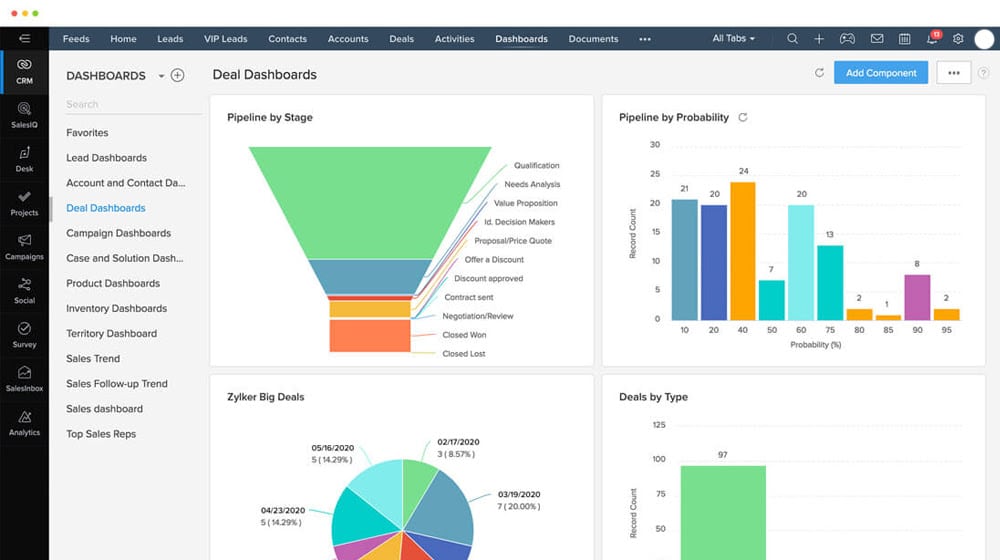
That said, the best alternatives I've tried out are:
- ZoHo CRM. ZoHo is sort of like the Growth Hacker's version of HubSpot, with a bunch of different apps all working together to give you the features you need. You'll probably see their name crop up in other parts of this list, too.
- Monday. The Monday CRM is a more modern take on the CRM environment and gives you a bunch of useful features, though there are some odd gaps in what they can do. It's still worth a try.
- Pipedrive CRM. One of the narrower sales-focused CRMs, this one doesn't try to shoehorn in a bunch of unnecessary features and keeps it more limited to what actually is necessary for your team.
There are always more, of course, so feel free to add your suggestions in the comments.
Alternatives to HubSpot as a CMS
One of the biggest flaws in HubSpot is as a CMS. It's clunky, it's slow, and there are a lot of better choices out there. This was the hardest section to narrow down to just a few options.
Truthfully, I'd list WordPress as the only alternative here if I thought I could get away with it. I'm a diehard WordPress fan. I'm huge into those micro-optimizations and tweaks that make WordPress really sing, and you just can't do that with other CMS platforms. But, I recognize that WordPress is big and widespread enough that you already know if you want to use it as an alternative.
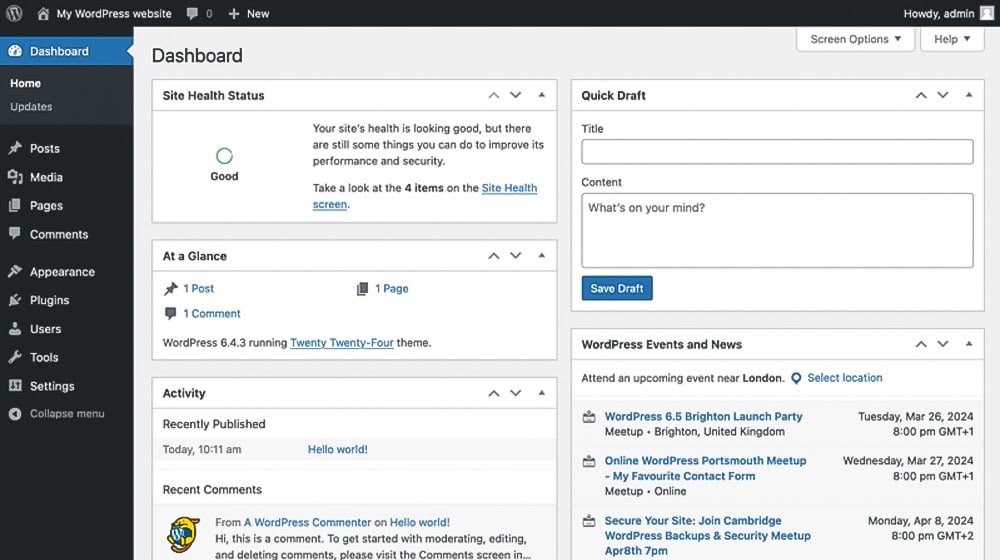
My second option is Joomla. I'm not a fan of Joomla, but that's because it doesn't suit my needs. I fully recognize that, if you have a huge site, a multilingual site, or an oddly complex site structure, Joomla will handle it better.
My third option is Ghost. If you want a small, agile, pared-down CMS that doesn't have the decades of cruft of WordPress, this one is a great little option. It will fall flat for larger enterprises, but for small brands and individuals, it works well.
Alternatives to HubSpot as a Site Builder
A lot of brands use HubSpot as a site builder. Honestly, I don't really like any stand-alone site builders. They're usually clunky, restrictive in their features, and slow. Even HubSpot's site builder isn't all that great; it's just well-integrated.

That said, three options you can consider are:
- WordPress.com. It's nowhere near as powerful as self-hosted WordPress, but it gets the job done and makes it easy to transition to a full WordPress install later.
- Squarespace. Out of all of the stand-alone site builders, this one is the least bad in my experience. It's still annoying and restrictive, but at least it won't give you an automatic Google penalty.
- Webflow. Webflow works best if you're an advanced enough user to be able to do some development on your own, so it's outside the range of people seeking solely drag-and-drop builders, but it's decent enough.
Do you have a better recommendation for a site builder? Just not Wix, please; I've had so much trouble getting Google to even index a Wix site that I've written it off completely.
Alternatives to HubSpot for Live Chat
One of the smaller but still useful features of HubSpot is its live chat and bot chat system. It's like an instant messenger built into your site. A bot can ask basic filtering questions, pass a user off to the appropriate team, and solve customer problems. As long as it doesn't use generative AI and cause issues by making promises the company won't keep, you're in a good place.
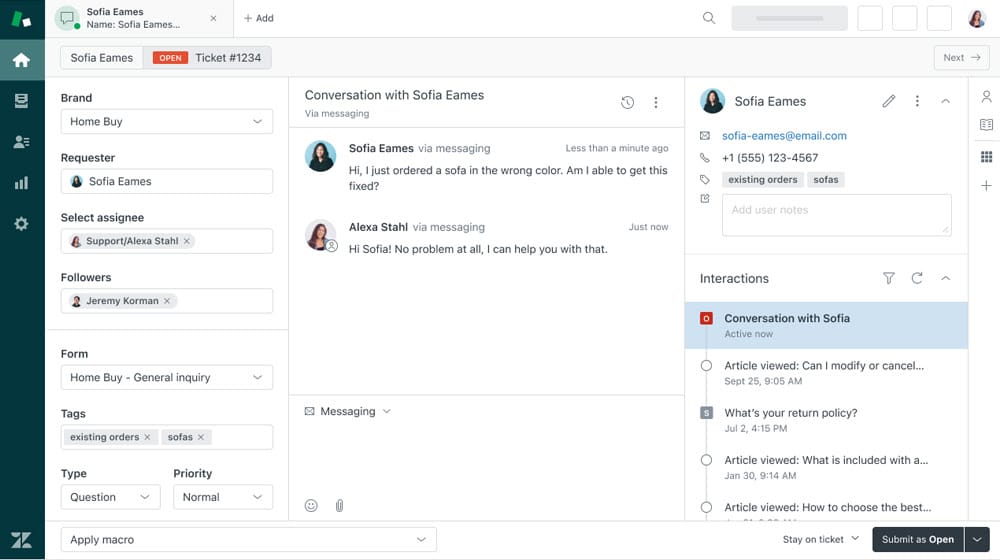
Some of your best options include:
- Zendesk. Zendesk is very common as both a chat service and as a knowledge base platform, and I've had good experiences with both features. If you're not just going to use a WordPress plugin, this would be my #1 stand-alone app for chat.
- Intercom. Intercom's live chat is a pretty solid option. You can do a lot of customization and get some useful features out of it, and it works well across the board.
- Freshchat. An app from Freshworks, this is a good chat system with a semi-CRM built into the business dashboard. It can handle all of your comms if you want, or just be limited to chat.
Live chat is often integrated with email marketing platforms, too, so you can get some overlap there.
Alternatives to HubSpot for Email Marketing
Speaking of email marketing, HubSpot's email marketing features are, legitimately, some of the better options around. At least as long as your brand is small enough. The huge jump in price once you reach a certain growth point is a massive point of friction for growing businesses. There's no simple middle ground with HubSpot.
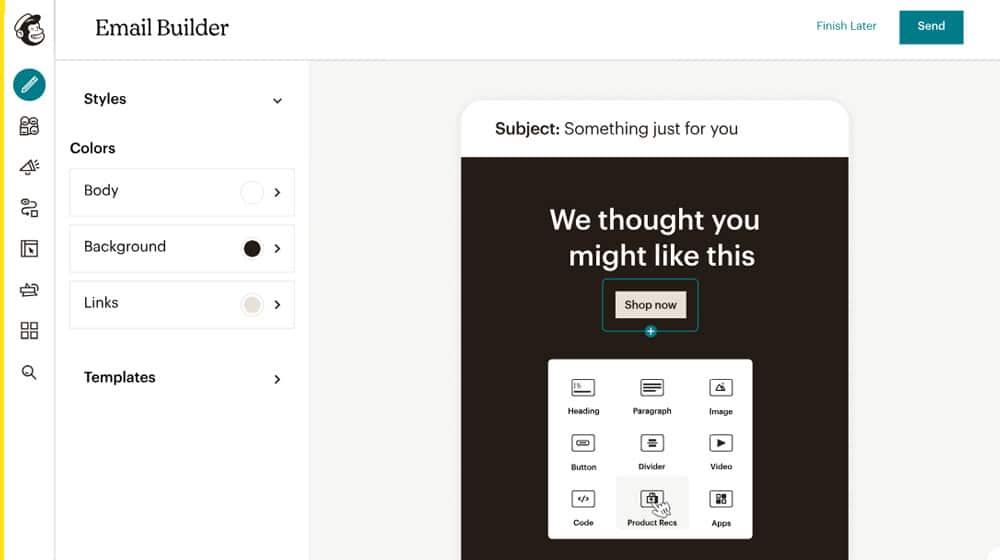
So, consider using an alternative email marketing platform, like:
- Mailchimp. I do think that Mailchimp has gone downhill a bit since Intuit acquired them, but they're still decent enough to serve the purpose.
- GetResponse. This one has been expanding and is almost more of a full CRM by this point, so depending on your needs, you might be able to use it for more than just email.
- Klaviyo. Klaviyo has some of the best email analytics I've found in an email management platform. It also handles SMS, push ads, and a few other features like reviews and forms if you want to use those functions as well.
Email is so important to modern marketing that you really need an email platform you click with. Be aware of price hikes when you reach certain numbers of contacts, too, so you aren't blindsided by a big bill.
Alternatives to HubSpot for a Knowledge Base
The HubSpot knowledge base is fine, but just like other features, you can find replacements fairly easily. There are a bunch of questions you want to ask about your needs before you do, though. In particular, do you need internal, external, or both? How much formatting and code do you want to do? These can impact your choice.
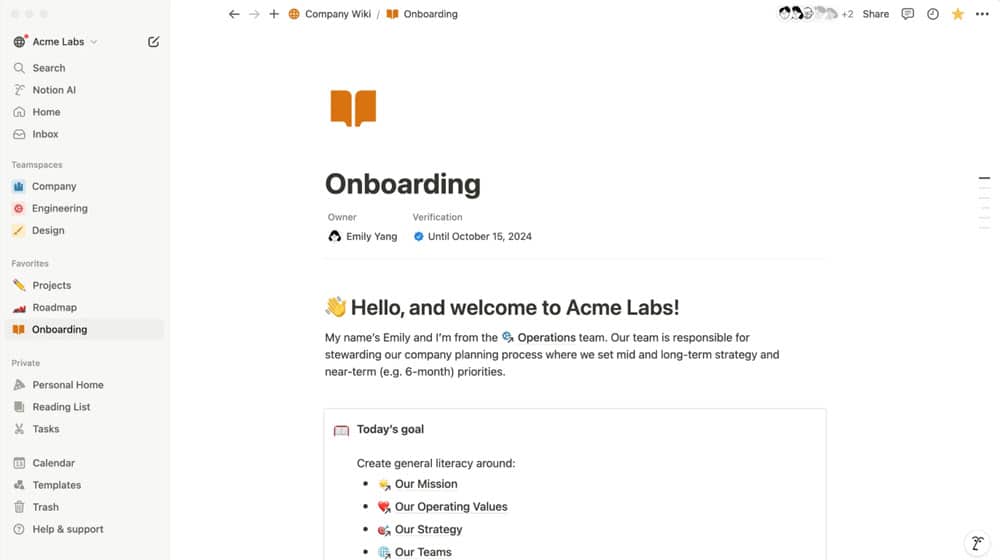
Some potential options include:
- Notion. Notion has a bunch of features centered around productivity and site management, but their docs and wiki systems work pretty well as a knowledge base for internal and external use. Just be careful about using the AI assistant to put them together.
- Confluence. One of the big offerings from Atlassian, Confluence is a combination knowledge base and teamwork platform. It's good for collaboration and maintaining an internal knowledge base, but not as good for external use.
- Zoho Desk. Another Zoho offering, Desk is one of the more common and useful customer-facing knowledge base apps out there.
You can also use a self-hosted Wikia-style wiki manager to run your own custom setup. It's more work, but nicer results when you get it all configured.
Alternatives to HubSpot for Ads Management
HubSpot, acting as a centralized place to manage ads across platforms like Google ads, Facebook, Instagram, and LinkedIn, is very handy. Having all of your assets in one place the whole team can access, managing ads across all of them, and tracking all of your metrics is nice. Fortunately, ad managers are common, so you have options.

Some of your options include:
- AdEspresso. One of the older and more useful ad managers, Hootsuite acquired them a while back but have kept the functionality pretty much the same, just built out the integrations. It's still one of my favorites.
- AdRoll. AdRoll has a pretty solid roster of ad types you can manage through their platform, and you can track performance all through your funnel with a little bit of code. They also handle a bunch of platforms, including TikTok and Amazon, so it's fairly all-encompassing.
- Influ2. This is a bit of an odd one. It's meant to be highly targeted ads aimed at specific people in given roles, usually decision-makers in your customer base. You can't be too specific with it, but it's still a very focused option.
Before you invest in an ad manager, make sure it can link into whatever ads system you want to use. It's no good to you if it can't manage ads on your social networks of choice, right?
Alternatives to HubSpot for Sales
There's a lot of overlap between CRM, outreach like email and chat, and sales. You can put together a passable sales platform just out of the things I've listed above, or you can get a stand-alone sales platform that integrates into other apps for the features you need.
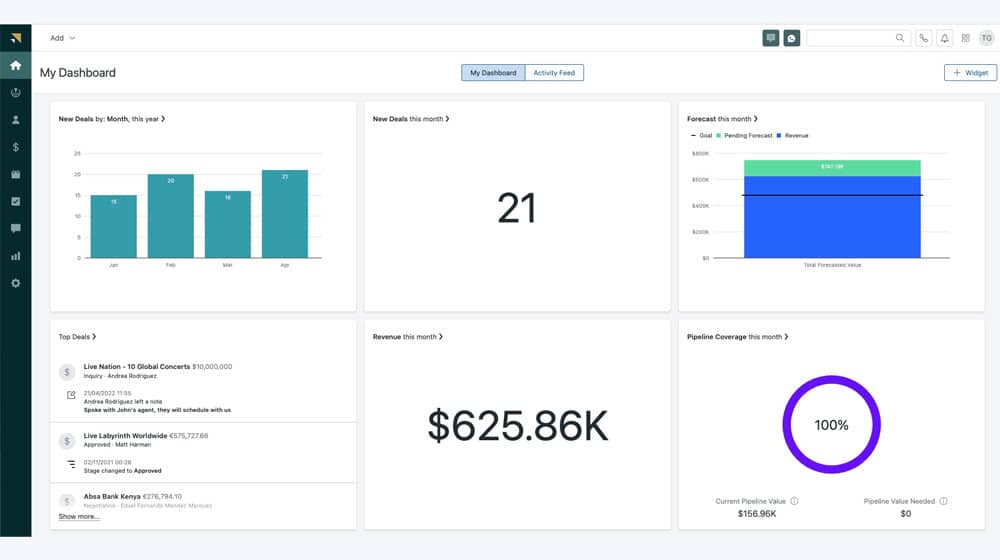
Some options to consider:
- Zendesk Sell. Zendesk enters the list again, this time with their sales platform. I'm not a huge fan of all of Zendesk's offerings, but the sales platform is solid and worth giving a shot, and it has a free trial to explore.
- Seismic. This one calls itself a "sales enablement platform," but what that really comes down to is that it's a hybrid CRM, CMS, engagement and outreach platform, and training platform. It does a lot of different things, so see what gaps are left over if you choose it and fill them in with other apps.
- SalesRabbit. This one is only for certain kinds of businesses, but it works really well for those who can use it. It's specifically aimed at field sales, so the people who go out and make sales calls or knock on doors. For example, solar power companies love it. If you can use it, give it a shot.
Sales is one of the trickiest niches to fill, so if you have alternatives to suggest, I'm all ears.
Alternatives to HubSpot for Automation
When you use a platform like HubSpot, everything works with everything else, and you can often set up automated workflows to pass through different team members and parts of the platform. When you're setting things up with half a dozen or more different apps, you lose a lot of that functionality. Automation is the glue that holds it all together.
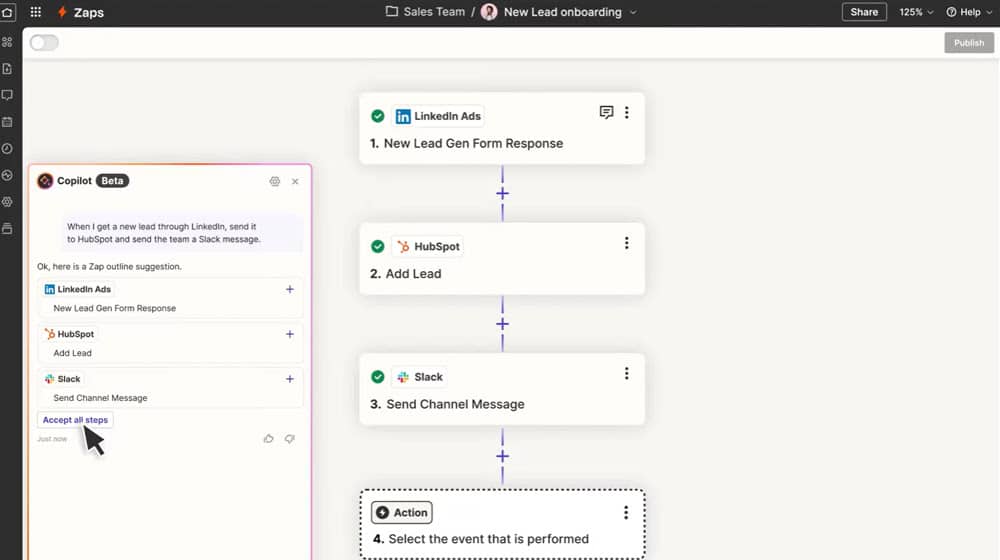
With that in mind, here are some of your best options:
- Zapier. Zapier is my go-to for automation. It has a million integrations and APIs you can connect, and if a specific platform you want to use doesn't work, you can request that they add it or even launder your input through a middleman app like a CSV parser. It's super handy and integrates with nearly everything I've tried out.
- Microsoft Power Automate. If you've ever wanted something like Zapier but made and supported by a Big Tech firm, Power Automate is the way to go. In some ways, it's more limited than Zapier, but in others, it's much more powerful.
- Relay. One of the relative newcomers to the automation space, Relay is doing what Zapier and IFTTT did before they got large enough to "go corporate" and slowed down. It's still pretty agile and adding new things all the time.
I know it can be a huge pain to try to link up a dozen different apps to replicate something like HubSpot. I also know that, when all is said and done, you might not actually be saving all that much money. If you're willing to work, though, it can all be put together fairly smoothly. Even saying that, though, I do welcome your input if you have things you'd want to add to this list. Let me know!




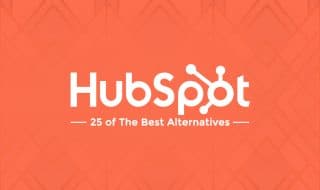
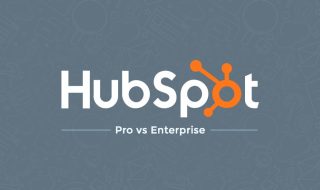




Comments